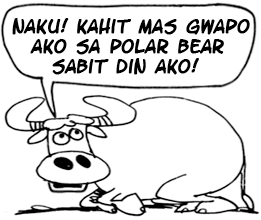Warming warning: The polar bear is us
 If you think climate change is only faced by some far-off polar bear decades from now, well, you’re mistaken.
If you think climate change is only faced by some far-off polar bear decades from now, well, you’re mistaken.
In fact, climate scientists say, the dangers of a warming Earth are immediate and very human.
“The polar bear is us,” says Patricia Romero Lankao of the US National Center for Atmospheric Research, referring to the first species to be listed as threatened by global warming due to melting sea ice.
Lankao will be among the more than 60 scientists gathering in Japan on Tuesday to finish writing an authoritative report on the impacts of global warming.
With representatives from 100 governments at the meeting of the Intergovernmental Panel on Climate Change, they’ll wrap up a summary that tells world leaders how bad the problem is.
The key message from leaked drafts and interviews: The big risks and overall effects of global warming are far more immediate and local than scientists once thought.
It’s not just about melting ice, threatened animals and plants. It’s about the human problems of hunger, disease, drought, flooding, refugees and war, becoming worse.
The report says scientists have already observed many changes from warming, such as an increase in heat waves in North America, Europe, Africa and Asia.
Severe floods are now more common in Africa and Australia. Europe and North America are getting more intense downpours that can be damaging.
Melting ice in the Arctic is not only affecting the polar bear, but already changing the culture and livelihoods of indigenous people in northern Canada.
Not far-off in time
Past panel reports have been ignored because global warming’s effects seemed too distant in time and location, says Pennsylvania State University scientist Michael Mann.
This report finds “it’s not far-off in the future and it’s not exotic creatures—it’s us and now,” says Mann.
The United Nations established the climate change panel in 1988 and its work is done by three groups. One looks at the science behind global warming. The group meeting in Japan studies its impacts. And a third looks at ways to slow warming.
Its reports have reiterated what nearly every major scientific organization has said: The burning of coal, oil and gas is producing an increasing amount of heat-trapping greenhouse gases, such as carbon dioxide. Those gases change Earth’s climate, bringing warmer temperatures and more extreme weather, and the problem is worsening.
Key message
The panel won the Nobel Peace Prize in 2007, months after it issued its last report.
Since then, the impact group has been reviewing the latest research and writing 30 chapters on warming’s effects.
The key message can be summed up in one word that the overall report uses more than 5,000 times: risk.
“Climate change really is a challenge in managing risks,” says the report’s chief author, Chris Field of the Carnegie Institution of Science in California. “It’s very clear that we are not prepared for the kind of events we’re seeing.”
Already the effects of global warming are “widespread and consequential,” says one part of the larger report.
Violence feared
If climate change continues, the panel’s larger report predicts these harms:
— Violence: For the first time, the panel is emphasizing the nuanced link between conflict and warming temperatures. Scientists say warming won’t cause wars, but it will add a destabilizing factor that will make existing threats worse.
— Food: Global food prices will rise between 3 and 84 percent by 2050 because of warmer temperatures and changes in rain patterns.
— Water: About one-third of the world’s population will see groundwater supplies drop by more than 10 percent by 2080, compared with 1980 levels. For every degree of warming, more of the world will have significantly less water available.
— Health: Major increases in health problems are likely, with more illnesses and injury from heat waves and fires and more food- and water-borne diseases.
— Wealth: Many of the poor will get poorer. Economic growth and poverty reduction will slow down. If temperatures rise high enough, the world’s overall income may start to go down, by as much as 2 percent, but that’s difficult to forecast.














